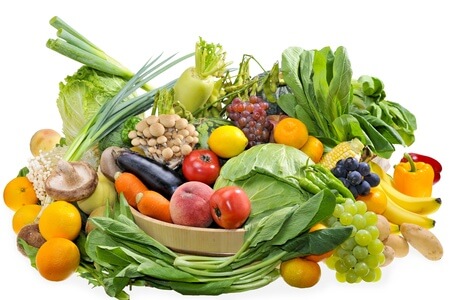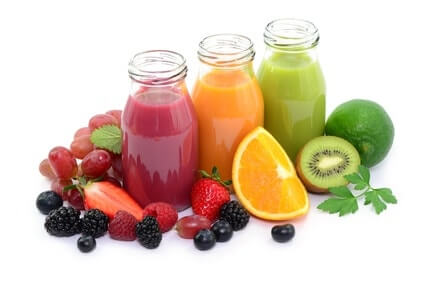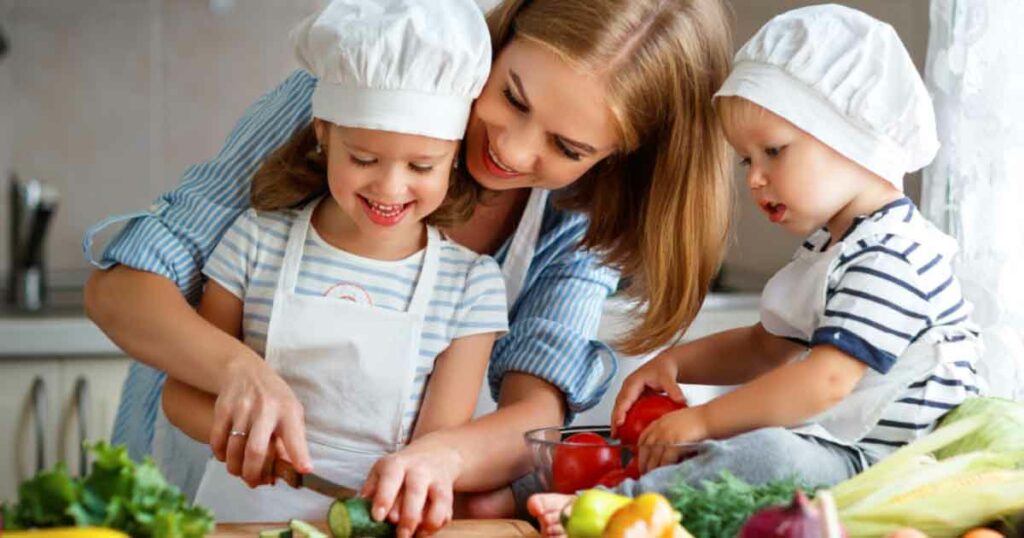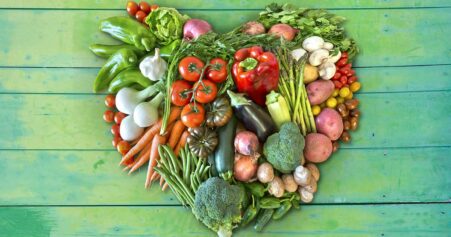Table of Contents
Vegan Family – Not too long ago, the Italian press was full of headlines about a family who (allegedly! because the facts were different) had fed their child vegan and had almost killed it. Of course, these headlines also made their way to other parts of the world, and some people became “nutrition experts” overnight: “How can you feed your family vegan, that cannot be healthy!”
Fearmongering Instead of Education
Not only did vegan parents find themselves accused of sacrificing their child’s well-being on the altar of a crazy love of animals, but some moms and dads began to have doubts of their own. Are we doing the right thing? Could we be endangering our child by “forcing” our way of eating upon it? Concerned grandparents begged or threatened to finally feed their grandchildren “properly,” and even relatives and friends suddenly knew exactly what could possibly be right for their children. A little later, a German health insurance company followed up with the – not science-based – statement that a vegan pregnancy would endanger the unborn child.
What is particularly unfortunate about messages like this is that opportunities for objective clarification and information have been missed. Not only vegan families are confused by such statements, but also people without children ask themselves: What is the point of these headlines? Are we really harming our health when we only want to do good for ourselves and our environment with a plant-based diet?
Child Nutrition – a Cornerstone for Later Health
It is a fact that a healthy vegan diet is not simply about avoiding meat and milk. It is also a fact that a nutrient- adequate and overall healthy diet is of utmost importance, especially for children, and a vegan menu must pay special attention to certain nutrients (Leitzmann and Keller, 2013; Richter et al., 2016). For example, a vegan family needs to supplement with vitamin B12 (Gilsing et al., 2010). That’s the mandatory supplementation; “having to chow down on pills all the time” is by no means necessary. By the way, frozen pizza, chocolate bars, McDonald’s and sausages are also not a healthy long-term diet for families and children, that is what we would like to make clear at this point.
adequate and overall healthy diet is of utmost importance, especially for children, and a vegan menu must pay special attention to certain nutrients (Leitzmann and Keller, 2013; Richter et al., 2016). For example, a vegan family needs to supplement with vitamin B12 (Gilsing et al., 2010). That’s the mandatory supplementation; “having to chow down on pills all the time” is by no means necessary. By the way, frozen pizza, chocolate bars, McDonald’s and sausages are also not a healthy long-term diet for families and children, that is what we would like to make clear at this point.
As dangerous as malnutrition due to a poorly thought-out vegan diet is, the “too fat, too sweet, too unbalanced” mixed meals in childhood, which unfortunately all too often end up in the mouths of non-vegan children (and adults!), also lay the foundation for later predisposition to diseases such as obesity, diabetes, arteriosclerosis, and more. (Sabaté and Wien, 2010; Melina et al., 2016).
Information – the Thing About Research
Whether you are single, a couple or a vegan family with children, the uncertainty is huge. Consequently, one looks for a remedy, perhaps asks the family doctor, and usually it becomes clear quickly: If it is not a nutritionist, the specialized knowledge does not often go beyond the knowledge of every other person, and even specialized doctors often have to pass when it comes to the topic of healthy vegan family nutrition.
The next place that is approached often is a conventional nutritional counseling. There it is often recognized as well: Of course they have already heard about veganism, but it is not unusual that you do not get any helpful information. In the worst case, due to a lack of knowledge about healthy vegan foods (or the personal taste of the consultant!), vegan diets are simply declared to be wrong, unhealthy or unnatural. Then textbooks are what remains to get information from, and it quickly becomes clear: Especially regarding nutrition for family and children, the book market does not offer much, and without nutrition-specific background knowledge, one has hardly a chance to understand highly scientific studies or even to judge whether they have a foundation in fact. And again, the vegan family is not one step further in terms of knowledge …
Practical Knowledge vs. Information Jungle
 “If you want to eat a vegan diet and feed your family vegan, you need the knowledge to do so”, that’s what specialists and lay people agree on, and this statement is absolutely justified. But: if you want to become knowledgeable, this indeed is a good idea, but how do you know which book is really readable and understandable? Which approach to take? Are raw foodists the smart ones? What about vegan convenience foods? Should you supplement with vitamin D as well? How much protein does a 6-year-old whirlwind really need? Should I eat differently at the age of 30 than at 65? How much more iron does Mom need, and is Dad getting enough iodine? Can Junior do competitive sports on pure vegetable fuel? What about vegan diets and osteoporosis when you are older? And how can you argue when your mother-in-law bursts into tears because she sees her grandchildren facing starvation?
“If you want to eat a vegan diet and feed your family vegan, you need the knowledge to do so”, that’s what specialists and lay people agree on, and this statement is absolutely justified. But: if you want to become knowledgeable, this indeed is a good idea, but how do you know which book is really readable and understandable? Which approach to take? Are raw foodists the smart ones? What about vegan convenience foods? Should you supplement with vitamin D as well? How much protein does a 6-year-old whirlwind really need? Should I eat differently at the age of 30 than at 65? How much more iron does Mom need, and is Dad getting enough iodine? Can Junior do competitive sports on pure vegetable fuel? What about vegan diets and osteoporosis when you are older? And how can you argue when your mother-in-law bursts into tears because she sees her grandchildren facing starvation?
Vegan Nutrition Counseling for the Vegan Family
The Vegan Nutritionist Course was originally conceived by knowledgeable vegans for vegans to train the urgently needed specialists in this field. However, it quickly turned out: Not only people, who want to work as a counselor, but also more and more vegan families, who intend to use this training for themselves and their private environment, do the course. Moreover, small families without children and people of all ages, who are tired of the constant uncertainties, have realized how much they can benefit from well-founded knowledge.
It is especially pleasing that the vegan idea is not only interesting for very young people, as it is often claimed. The age of the students is currently between 16 and 85 years, the average age is 36 years, about a third of the students are between 40 and 60 years old, and even people over 60 were very successful. Anyone who has enough of fairy tales and myths, who wants to know facts and aims to be scientifically up to date and who wants to feed their family vegan, without being plagued by doubts, will find exactly what they are looking for and needs in the Vegan Nutritionist Course. Of course with a free trial period and our ecodemy Nutrient Database included.







Leave a Reply